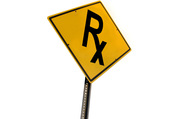
Lesson # 1: Give Gifts
Over half of the pharmaceutical marketing budget is earmarked for gifts. Think free drug samples, educational materials for patients and gifts for physicians.
Here are some gift ideas:
- A well-chosen book
- Branded notepads
- A branded bookmark
- Branded pens, coffee mugs and office supplies for home use.
- A whiteboard or bulletin board to coordinate family schedules.
- A list of local resources that save time or money.
- A donation to a clients’ favorite nonprofit
Can you develop “free samples” that would benefit the physicians’ family members?
- Piggy banks for kids
- Books for physicians’ partners, kids
- A notebook to keep track of spending.
Lesson # 2: Educate
The pharmaceutical industry delivers more hours of continuing medical education than hospitals! The content is developed by physician thought leaders and delivered in multiple formats to accommodate different learning styles: live events, written materials, video-based learning and audio courses.
Are you establishing yourself as an educator? Do you have a unique body of intellectual property? Do you invite experts to offer theirs?
Here are some topics that interest physicians:
- How to generate more revenue
- How to get more patient referrals
- How to avoid lawsuits
- How to raise financially literate children.
Lesson #3: Talk to influencers
The pharmaceutical industry took sales to the next level when they brought their message to the consumer. Now they are investing in social media to reach consumers. It works.
Can you bring your message to the people who influence physicians? Maybe it’s the husband or wife of your prospects, the executive director of medical associations or a vendor like the nail salon owner.
Lesson #4: Attend Physician Gatherings
Pharmaceutical reps meet physicians where they gather. This is much more effective than interrupting physicians during clinic hours. Attend medical meetings, or social events where your prospects and clients gather.
Lesson #5: Sponsor Events
In the past pharmaceutical companies sponsored social events, philanthropic efforts and community campaigns. This practice, like gift-giving, has been curtailed. You can sponsor:
- Educational events
- Fundraisers
- Family fun
Lesson #6: Recruit Physician Opinion Leaders
The pharmaceutical industry identifies physician thought leaders –called Key Opinion Leaders or KOL’s–who are invited to speak at educational events, participate in clinical research and become brand representatives.
How well do you understand the social networks of your target physician clients? Are you developing relationships with thought leaders? Could you ask one of your physician clients to give a talk about a topic that interests colleagues?
Lesson #7: Repeat Your Message
On average, pharmaceutical reps expose physicians to a message about a new medication six to ten times before it’s prescribed. What mechanism do you have to regularly reach out to prospects and clients with high-value content?
Summary
These seven lessons gleaned from the pharmaceutical industry can help you join the ranks of high-performing financial advisors who get great results in the medical market.

